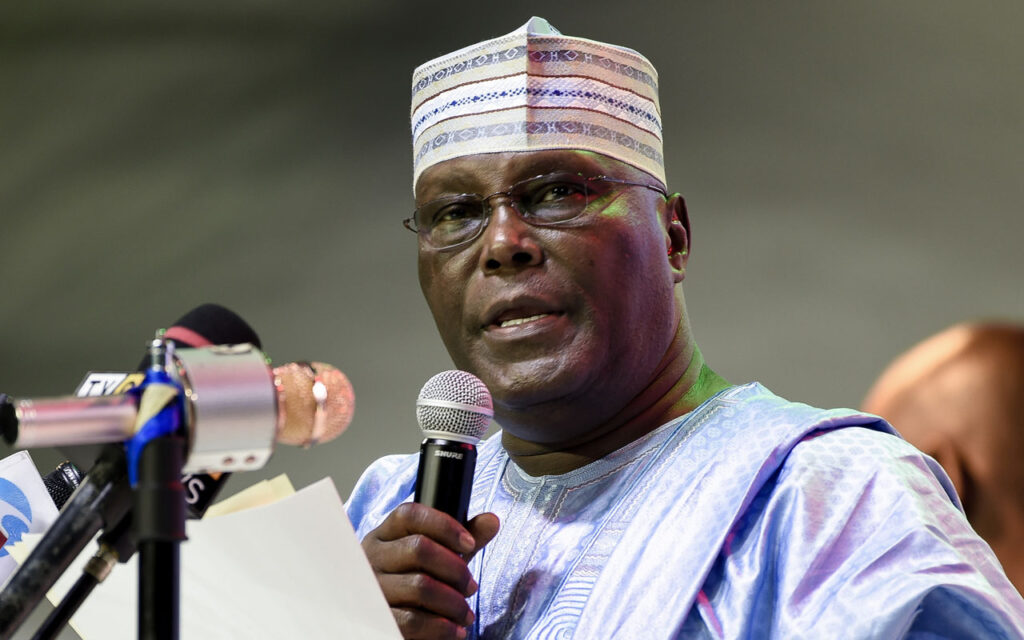Speaking during the inauguration, which witnessed the absence of seven out of the 15 justices of the apex court, Justice Kutigi declared that although he had sworn in Katsina-Alu as the new Chief Justice, he was still in charge until the next day when he clocks 70 years.
“By 12 midnight today, I will be clocking the statutory retirement age of 70 and that means I will be retiring then. But for the interest of mischief makers who may go about writing that we have two Chief Justices of Nigeria, let me make it clear that for now, I am still in charge”, he stated, throwing himself and all present on the occasion into uncontrollable laughter.
He observed that whereas people had been criticising his plan to swear in Katsina-Alu as the new Chief Justice, the second schedule of the Oath Act, Laws of the Federation and the Constitution of the Federal Republic of Nigeria, 1999 conferred the powers on the country’s President and himself as the Chief Justice to swear in judicial officers, including the in-coming Chief Justice.
However, he admitted that it was the first time the out-going Chief Justice was inaugurating his successor. But there was nothing wrong with that, he added.
“I knew this has generated a lot of reactions even among those who should know better in the paper. The Constitution and Oath Act of Nigeria provided for this just because it has not taken place all along. There is nothing new about it, the law is there.
“The President has always been there to do the inauguration, but this time he is not there. So I, as the Chief Justice, have performed that duty. The judicial Oath of office and the Constitution of the Federal Republic of Nigeria, 1999 confer the power to swear in any judicial officer on the President and the Chief Justice. So there is nothing wrong with that”, he declared.
“Let me casually say that I will be 70 years by midnight today. The constitution makes it mandatory for me to bow out tomorrow. Make no mistake about it, I am still in charge. I say this because someone can say there are two CJs in Nigeria today,” he stated.
Kutigi also swore-in Justice Isa Ayo Salami as the President of the Court of Appeal.
While Katsina-Alu is the 11th indigenous Chief Justice, Salami becomes the fifth President of the Court of Appeal.
Also speaking inside the apex court complex after the ceremony, the Attorney General of the Federation and Minister of Justice, Michael Kaase Aondoakaa, told journalists that the signing of the 2010 budget by President Umaru Musa Yar’Adua in Saudi Arabia was constitutional.
He likened Yar’Adua’s situation to what is happening in United States (U.S.) wherein President Barack Obama went on vacation to Hawai, which is about 13 hours from the Oval House, while Saudi Arabia, where Yar’Adua is on medicare is only six hours away from Nigeria. According to him, Obama ordered a review of air security in the U.S. while in far away Hawai.
He said there was nothing wrong for the president to sign the 2010 budget from Saudi Arabia and that when somebody takes time off to treat himself, it should not be a problem.
Meanwhile, several other legal practitioners in the country have shared the concerns of prominent legal practitioner, Chief Adegboyega Solomon Awomolo, on the propriety of the swearing-in of both justices. Awomolo had, earlier this week, cautioned against the ceremony.
Although, the three senior lawyers who spoke pleaded anonymity, they said they were persuaded by the position of Awomolo, which was reported on Wednesday in The Guardian.
He had cautioned against the inauguration on the contention that the appointment processes of Katsina-Alu as the new Chief Justice of Nigeria and Justice Isa Ayo Salami as President of the Court of Appeal were inconclusive.
He pointed out that after the Senate confirmed Katsina-Alu and Salami for their various offices, the statute required Yar’Adua to appoint them with another letter.
“When the Senate confirmed the justices for their new appointments, President Yar’Adua was out of the country and has not returned to the country to endorse their confirmation by the Senate”, Awomolo stated.
“Unless the President has issued a letter, which they must show since he has not been on his table, we must be careful about a swearing-in ceremony.”
He noted that “the judiciary has been the only arm of government that has remained untainted and without blemish and we must be careful not to allow the Executive hoodwink us into a legal crisis because of their own shortcomings”.
He warned that “if there is no letter after Senate confirmation, then legal action may be initiated by any person that could end in the Supreme Court and be decided by the same man whose appointment is being challenged.”
Asked what the way out of the quagmire would be, he advised an adherence to the constitution.
“Let the constitution be followed; if the President is incapacitated, he should transfer power to the Vice President by writing to the National Assembly. Once that is done, then the Vice President acting as President can swear them in”, he stated.
But the immediate past General Secretary of the Nigerian Bar Association (NBA), Rafiu Lawal Rabana (SAN) has said that the out-going Chief Justice has the constitutional power to swear in the in-coming one.
Rabana said in Ilorin in an interview with The Guardian that Section 10 (2) of the Oath’s Act conferred the right on the out-going Chief Justice of the Federation to swear in his successor in office.
The legal icon said the relevant section of the law especially Second Schedule of the Oath’s Act cited by him listed the categories of those who could administer the oath, adding that the outgoing Chief Justice was among them.
For him, Section 185 (2) of the 1999 Constitution was more explicit on the swearing-in of the nation’s president, noting that in the case of the Chief Justice of the Federation, the constitution was not specific, hence the need to resort to the Oath’s Act.
He congratulated the newly sworn-in Chief Justice and the new President of the Court of Appeal on the occasion of their new offices, adding that Aondoakaa has laid a good precedent on the legal issue.
In the same vein, another legal icon based in Ilorin John Olusola Bayeshea (SAN) while reacting to the legal confusion the swearing-in of the new Chief Justice and President of the Court of Appeal could create, said it was better off than creating a vacuum.
 HISTORIC. Really historic. That is the way to describe the swearing in of Justice Iyorgher Aloysius Katsina-Alu as the new Chief Justice of Nigeria (CJN) by the outgoing Chief Justice Idris Legbo Kutigi.
HISTORIC. Really historic. That is the way to describe the swearing in of Justice Iyorgher Aloysius Katsina-Alu as the new Chief Justice of Nigeria (CJN) by the outgoing Chief Justice Idris Legbo Kutigi. 









